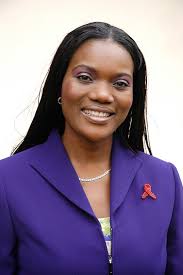BY BYRON MUTINGWENDE
The Pan African Positive Women’s Coalition (PAPWC) on 25 May 2016 celebrated its fifth anniversary as it reflected on milestone achievements towards making the voices and aspirations of African women living with HIV heard.
PAPWC was founded on 25 May 2012 in Harare, Zimbabwe by a small group of African women living with HIV in response to their needs and was officially launched at the International AIDS Conference in July 2012. The coalition is registered as a non-governmental organization in Nairobi, Kenya which hosts the continental secretariat.
“Today, we celebrate the birthday of PAPWC in coincidence with Africa day 25 May. We congratulate the African Union Commission for yet another Africa Day this 2016, a special year where the United Nations will adopt the new Political Declaration on ending AIDS.
“PAPWC is in cognizance of the African Union collective vision and roadmap for the next 50 years also known as the Agenda2063. We speak to the African Union and its regional economic blocks to honor and intensify the commitment to the Agenda2063 and end AIDS on the African continent by 2030,” PAPWC said in a statement.
Aspiration 6 in the Agenda 2063 of the African Union Declaration states that ; An Africa whose development is people-driven, relying on the potential of African people, especially its women and youth, and caring for children: strengthening the role of Africa’s women through ensuring gender equality and parity in all spheres of life (political, economic and social); eliminating all forms of discrimination and violence against women and girls; creating opportunities for Africa’s youth for self-realization, access to health, education and jobs; and ensuring safety and security for Africa’s children, and providing for early childhood development.
The advocacy group said that it envisages the voices of African women living with HIV being expressed through their aspirations for the future and amplified for promoting full gender equality in all spheres of their lives during the Agenda 2063.
The women urged African leaders and their governments to move from rhetoric to action in their first ten –year implementation plan.
“We call for urgency in mobilizing a concerted drive towards immediately ending child marriages, female genital mutilation and other harmful cultural practices that discriminate against women and girls. We are calling for transformative outcomes that relate to the standard of living, malnutrition, maternal, child and neonatal deaths; access to HIV/AIDS treatment and prevention of death attributable to HIV/AIDs, TB, malaria and other diseases.
“PAPWC aspiration is to see the African Union, its regional economic blocks and countries, operationalise policies and programmes aimed at the empowerment of women living with HIV and young women and the removal of all obstacles related to women owning/inheriting property or business, signing a contract, owning or managing a bank account by 2023.”
Africans were encouraged to end all harmful social norms and customary practices such as child labour, exploitation, marriages and to see women living with HIV and young women having a greater voice in decision making by 2023.
With Technical support from UNAIDS, UNWomen, Zimbabwe National Network of People Living with HIV, National AIDS Council (Zimbabwe) WOFAK, ARASA, SAfAIDS, and other partners, PAPWC mobilized networks of women living with HIV in Africa, at country and sub-regional levels and increased their participation in community, national, regional and international platforms where they continue to articulate their issues and ensure effective representation and capacity building.
The inaugural PAPWC Indaba and biennial general meeting were held in Lusaka, Zambia in 2014 where 40 representatives of national networks of women living with HIV gathered together and dialogued with different stakeholders. They developed and organized the Women Networking Zone at the 18th edition of the International Conference on AIDS and Sexually Transmitted Infections in Africa (ICASA) which was hosted by Zimbabwe in 2015.
The coalition crafted a position paper alongside the rest of civil society, towards the much anticipated UNAIDS High-Level Meeting and Political Declaration of 2016, and issued several policy briefs, advocacy statements promoting research of female-controlled HIV prevention technologies, elimination-of-mother-to-child-transmission, addressing gender-based violence and universal access to HIV treatment for women and girls living with HIV.
It has an E-Newsletter The Dandaro/Forum, which was launched in 2015. Three PAPWC chapters were established and registered at law in Kenya, Rwanda and Zimbabwe and more chapters are being established in various countries across Africa.
‘PAPWC is promoting young women living with HIV into leadership. PAPWC continue to form strategic partnerships with funders, donors and other stakeholders at all levels. As we celebrate our birthday, we thank all our members for their resilience and engagement in service delivery to end AIDS at the community level where the most vulnerable women and girls are to be found.”
